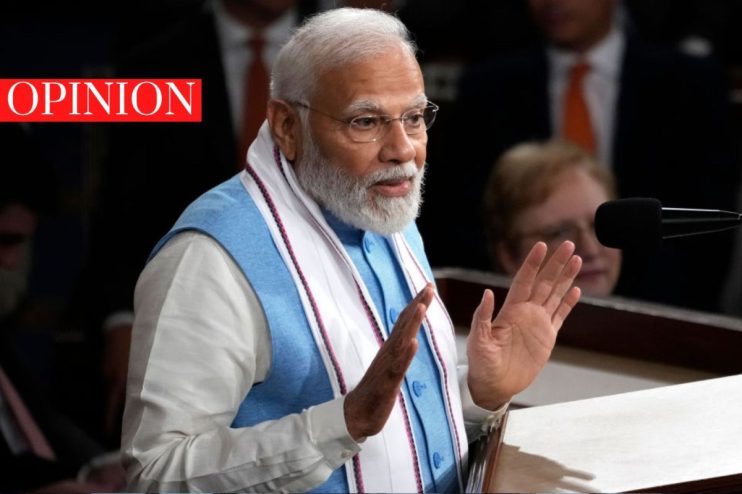India remains an untapped source of wealth for future UK trade and tech prosperity

There are clear economic benefits that we could reap from bilateral trade with India, as well as exciting technological opportunities, writes Constantin Cotzias
India is developing into a global economic powerhouse and it can only be in the UK’s best interests to continue strengthening the political, economic and cultural ties that date back centuries. As London continually works to protect its status as a leading technology capital, with our financial services sector, deep talent pool and investment in innovation, technology can be the centre of a budding relationship.
The government’s 2030 roadmap for India – UK relations – a practical plan to strengthen our bilateral relationship – is the right vehicle to ensure that we continue to share advances being made, whether that be in manufacturing, pharmaceutical, fintech, or emerging and green technologies.
Prime Minister Rishi Sunak clearly recognises the opportunities for future investments, and it was encouraging to see him invite a host of India’s most prominent business leaders into Downing Street earlier this summer to mark India Global Forum’s UK-India Week.
Ever closer relations with India is a no-brainer for the UK and the City of London – but the challenge remains how to take it to the next level. I’ve had the pleasure of meeting with a number of Indian business and government leaders in recent months – both in London and in India – and the sense of opportunity is palpable.
A central pillar of the 2030 roadmap will be around financial cooperation, and specifically securing a free trade agreement, which if negotiated, would hugely boost our current trading relationship – already worth an estimated £34bn.
There are clear economic benefits which can be seen through bilateral trade with India that registered £11.3bn in services and £13.15bn in goods during 2021-2022. These existing ties also support over half a million jobs and a record number of Indian-owned companies that do business in London and the UK.
Not only will a closer relationship help boost foreign direct investment, but it will also enable city investors to allocate more capital to India’s growing stock market. In 2021-2022, the UK became India’s sixth largest inward investor accounting for 5.3 per cent of foreign direct investment while India was the second largest foreign direct investor for the UK after the US. Over the past five years, India’s two largest stock market indexes, the Nifty 50 and BSE Sensex, have grown, with the Nifty 50 up around 70 per cent and the BSE Sensex up 76 per cent.
There are also huge technological opportunities. India has a thriving start-up ecosystem – the third largest in the world, and like the UK, it is already carving out its own path in developing frontier technologies like AI. London can capitalise on this by using its status as a technology powerhouse to attract the brightest Indian companies and talent interested in exploiting advancements, whether that be in medicine, space or information technology.
The UK’s AI Safety Summit in autumn – the first major global event of its kind on AI – will be an opportune moment to work closely with our Indian counterparts to ensure we can unlock the global growth opportunities that come with artificial intelligence, while at the same time ensuring it is used safely and responsibly.
Cementing UK-India ties matters from an environmental perspective too. As the UK charts its path to net-zero, we must continue working hand in glove with our partners around the world, including India – the world’s third largest emitter of CO2 – to help bring down emissions. Here, cross-government, public-private collaborations to mobilise private capital – things like the India Chapter of the Climate Finance Leadership Initiative – will be key to driving down emissions.
With a trade deal on the horizon, and as attention turns to the G20 in Delhi this autumn, the Prime Minister is right to be ramping up relations with India. If we get it right, and realise the 2030 vision, London and the UK will be able to reap the benefits.
